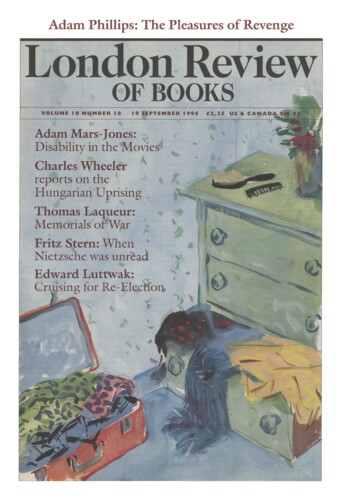Imperial Project
Richard Drayton, 19 September 1996
Only now, a generation after decolonisation, is it beginning to be understood how the Empire changed Britain. In India or Nigeria or Barbados, empire is taken to be central to the modern situation. But Britons often assume that their history stems from indigenous, or at worst European, cultural facts. Seeley in 1883 talks about England ‘expanding’ to reach its Victorian stature; Anthony Low, in 1983, of England ‘contracting’, in the second Elizabethan age, to become again a minor power on the flank of Europe. Popular sentiment and historical scholarship cling to this leavened loaf theory of a Celtic-Roman-German-Norse-Norman people winning then losing the world. The Empire is cordoned off into a chapter of modern British history, to be jumped over where it contradicts the main narrative of the rise of liberty and civility. This magnificent conceit of Britain springing directly from its medieval insular or European cultural roots has stood as the invisible scaffolding within which many political persuasions – from Clarendon, Hume and Macaulay to A.J.P. Taylor and E. P. Thompson – have helped an emerging nation make sense of itself. There are now good reasons, as Linda Colley and Chris Bayly have suggested, to bring the Empire to the centre of domestic history and to show how a wider world changed our experience of taste, style and kinship. In an empire, as Gibbon knew, it is often difficult to tell who conquered whom.’

